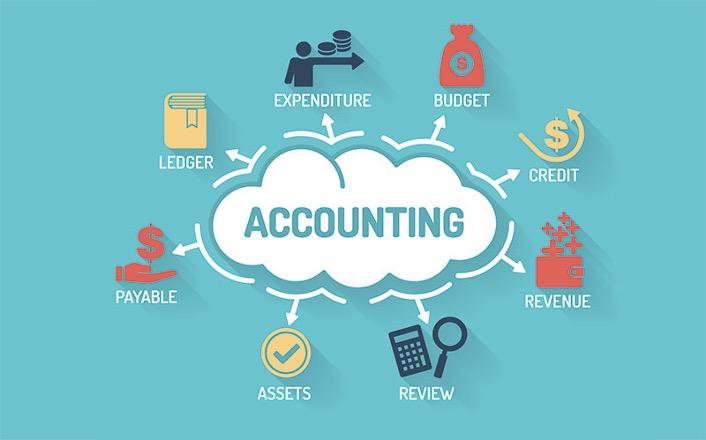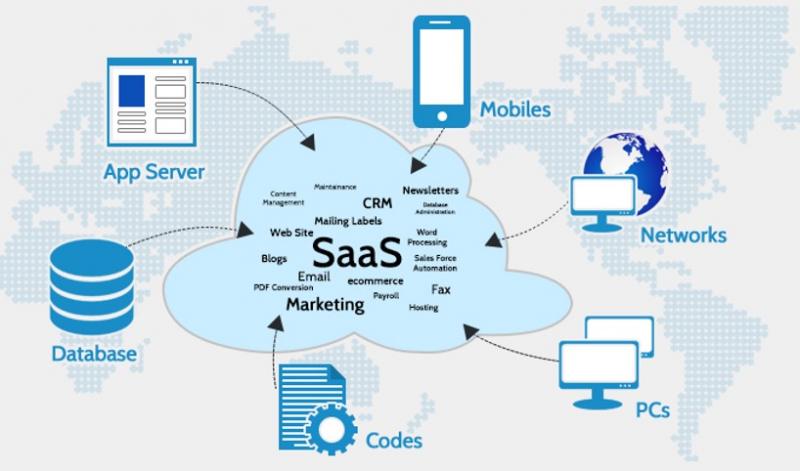Cloud Accountants Act as Your Very Own Accounting Professionals

What Is Cloud Accounting?
Let us begin by breaking this up.
Cloud or Cloud Computing is an umbrella term that refers to the ability to use a computer in any location i.e. in the cloud, as long as there is internet connection. It’s almost like saying it’s a ‘space in the clouds’ where you can work…like a hypothetical office server in space. Not one specific person or company owns it, and it is quite powerful and secure.
Accounting in many ways, has been called the ‘language of businesses. Because it is a profession that involves the measurement of an individual or companies economic outlook and breaks it down into measurable units besides a whole lot of other elements that make it as important as it is.
Cloud Accounting then, is a type of software (or tool) that is installed onto your computer via the Cloud and assists accountants as well as other employees in managing all aspects of accounting. It is categorised as a SaaS – Software as Service which would be hosted onto one main server and is accessible by everyone. You can learn more about this here.
The difference here is instead of saving the information onto every individual user’s computer, the data is sent to the ‘cloud,’ where it is administered and also responded to by any user.
In a nutshell, the software acts as your very own professional accountant.
Advantages of Cloud Accounting
- Besides the fact that using the Cloud is a lot safer nowadays, than saving information on your personal computer, it is also the best way to access real-time data at any time of the day or night.
- The capabilities of working on Cloud Accounting software are more flexible and easily accessible from anywhere.
- You don’t need hardware or expensive office equipment like servers when you use the cloud.
- Besides downloading the accounting software provided by technology accountant You do not need to install or change any system settings. It updates itself and completes its own back-ups without lifting a finger.

2 types of Cloud Accounting Software
There are generally two types of software to choose from:
- SaaS – Software as Service. Which are applications designed for people to use via their own search engines like Google Chrome or Internet Explorer etc
- Browser-based or Tool-based applications are usually installed on individual computers.
Depending on the size of the company or its needs, one can get either option.
So, if you are asking yourself whether you need a technology accounting service or just a professional accounting service, keep reading to find out more.
Depending on the type of business you are running, would the need for a software application. For instance, if you previously spent 6 hours a day completing your accounting statements manually, the likelihood that you need one is high, so as to save you time so you can compete for other chores.
But if you are a small company and your accounting records are updated once a week, then manually would be your option.
The advantage however, of using cloud-based services is that the margin of error is either non-existent or far less than manually doing it. We have all seen people getting frustrated at common errors, mistakes and countless edits, which have sometimes cost companies a lot of financial burdens https://www.information-age.com/top-10-benefits-cloud-computing-123467995/
As businesses grow in size and profits, it is essential to track every bit of monetary funding coming in and going out. Not to mention when you need to pay your taxes and put some aside every month for personal savings and you find out that’s not happening as regularly as it should.
Every niche needs a professional tool to help track everything for you instead of you having to do it yourself or hiring extra help to do it. Having said that, one of the main advantages of software used for accounting purposes is it helps you track invoices – both paid and unpaid.
You can save yourself and your company a lot of precious time by easily tracking payments that have not been made yet or that are past their due dates and instead of calling everyone who still owes you a payment, with one flick of the button you can send them a reminder or an alert to do so and make a record of it. The time you save, can be spent on competing other important tasks and running the business as it should.
More to Read:
Previous Posts:




